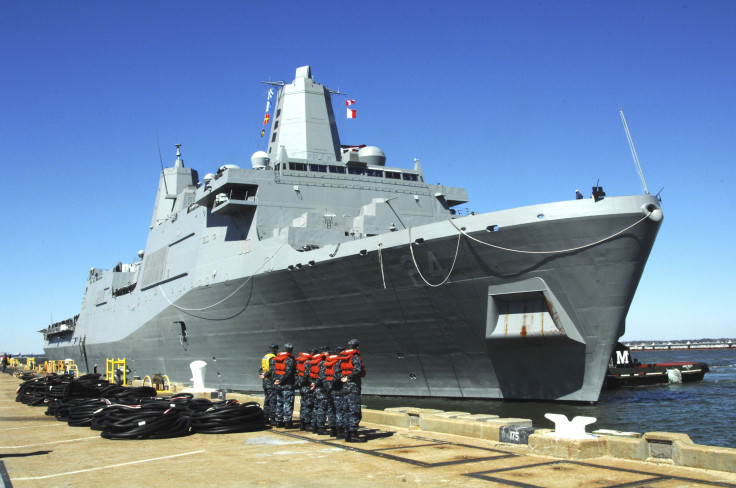BAE Systems Jobs Losses 2016: Norfolk Yard Cuts Underline Slowing US Defense Industry

BAE Systems, one of the world’s largest defense companies, is planning to cut 530 jobs in March at its shipyard in Norfolk, Virginia, amid a reduction in work from the U.S. Navy. The announcement from the British defense giant follows a cut of around 400 positions between September and December last year because of a delay in previously scheduled ship maintenance plans.
“These further reductions are necessary to align the Norfolk shipyard with lower demand for its services, resulting from fewer Navy ships homeported in the region available for maintenance and modernization, and the Navy’s changes to its scheduling and contracting processes for repair services,” BAE said in a statement, according to a report by DoD Buzz, an online defense and acquisition news site run by Military.com.
Workers at the yard primarily conduct maintenance and repairs of mostly U.S. naval ships, such as cruisers, destroyers, frigates, aircraft carriers and amphibious assault ships.
.@BAESystemsplc Announces More Layoffs at #Norfolk Shipyard https://t.co/hyHi2kfHf8 pic.twitter.com/ZlUn9o2fh6
— dodbuzz (@DoDBuzz) January 12, 2016The BAE personnel cuts do not come as a surprise, considering the end to the long wars in Iraq and Afghanistan and the resulting slowdown of defense acquisition by the U.S. military. In the recently passed defense budget, congressional lawmakers eventually agreed to find around $5 billion in cuts in order to pass the bill to authorize 2016 defense spending, which is likely to hurt acquisitions, and therefore defense manufacturers, this year. While $5 billion is not substantial given the defense budget is in excess of $600 billion, it is in addition to cuts already agreed on by lawmakers as they try to make the U.S. military more cost-effective and streamlined.
In May, Chairman of the Senate Armed Services Committee John McCain, R-Ariz., sought to put an end to expensive defense acquisitions and hold military manufacturers responsible for costly delays that taxpayers have traditionally paid for. He aims to strip the Pentagon of its authority to greenlight new weapons programs and put that power directly in the hands of the military branches in hopes that it will cut out expensive and time-consuming bureaucracy.
"Any time you kind of start to rejigger the Pentagon's internal processes, that causes a lot of controversy inside the Pentagon," acquisition expert Andrew Hunter, at the Center for Strategic and International Studies, told Politico. "The provisions they talk about — decentralizing, devolving more to the services — I think are likely to be very controversial."
In July, the U.S. Army announced it would cut 40,000 troops, which is thought to hit almost every domestic Army base.
© Copyright IBTimes 2025. All rights reserved.






















